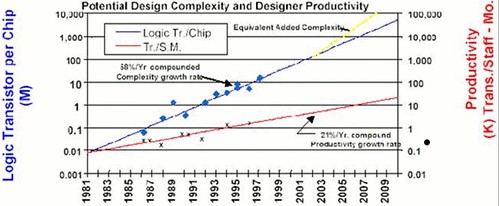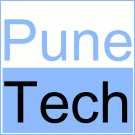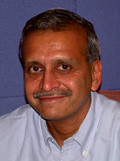(This article about a PuneChips event is reproduced with permission from the PuneChips website)
What: Talk by Ganesh Bhokare on Wavelet Transform & its Applications in Image Processing
When: Saturday, 6th March 2010, 10:00 am to 12:00 noon.
Where: Venture Center, NCL Innovation Park, Pashan Road
Registration and fees: This event is *FREE* for all to attend. No registration required.

Wavelet Transform & its Applications in Image Processing
In today’s multimedia wireless communication , major issue is bandwidth needed to satisfy real time transmission of audio and video data. The solution to this problem is to efficiently compress audio and video data for a given SNR. Wavelet transform is an evolving technology which offers far higher degrees of data compression compared to standard transforms such as DCT etc. In this talk we will be discussing concepts of wavelet transform and its applications to image compression and processing. The same can be extended to video processing.
About the speaker – Ganesh Bhokare
Ganesh Bhokare has over 15 years experience in using DSP audio, video and Embedded systems for Digital Media Processing. He is a PhD candidate at IIT Mumbai and currently in the process of defending his thesis. He has professional experience with NXP, Conexant, TI and Cirrus Logic.
About Venture Center
Entrepreneurship Development Center (Venture Center) – a CSIR initiative – is a not-for-profit company hosted by the National Chemical Laboratory, Pune. Venture Center strives to nucleate and nurture technology and knowledge-based enterprises by leveraging the scientific and engineering competencies of the institutions in the Pune region in India. The Venture Center is a technology business incubator specializing in technology enterprises offering products and services exploiting scientific expertise in the areas of materials, chemicals and biological sciences & engineering.
About PuneChips
PuneChips is a special interest group on semiconductor design and applications. PuneChips was formed to foster an environment for growth of companies in the semiconductor design and applications segment in the Pune area. Our goal is to build an ecosystem similar to PuneTech for companies in this field, where they can exchange information, consult with experts, and start and grow their businesses.
For more information, see the PuneChips website at http://punechips.com, and/or join the PuneChips mailing list: http://groups.google.com/group/punechips. Please forward this mail to anybody in Pune who is interested in renewable energy, solar technologies, semiconductors, chip design, VLSI design, chip testing, and embedded applications.
Related articles by Zemanta
- The problems with wavelets (x264dev.multimedia.cx)
- Everything You Need to Know About Image Compression (noupe.com)
- Storwize Real-time Data Compression Technology Wins 2009 Wikibon CTO Award (eon.businesswire.com)
Comments are closed on this article. Please comment at the original article
![Reblog this post [with Zemanta]](http://img.zemanta.com/reblog_b.png?x-id=dcfc0eae-c57b-45af-804d-63e201cd4a18)

![Reblog this post [with Zemanta]](http://img.zemanta.com/reblog_b.png?x-id=a4c21947-3784-4a52-9a7e-294dced5fd90)
 What: Talk by Abhijit Abhyankar, country head of
What: Talk by Abhijit Abhyankar, country head of ![Reblog this post [with Zemanta]](http://img.zemanta.com/reblog_b.png?x-id=063a8619-be3f-4f1b-b33f-903762e27723)

![Reblog this post [with Zemanta]](http://img.zemanta.com/reblog_b.png?x-id=a94ed4f5-a95b-4b6a-b4fb-d6261e766fe4)